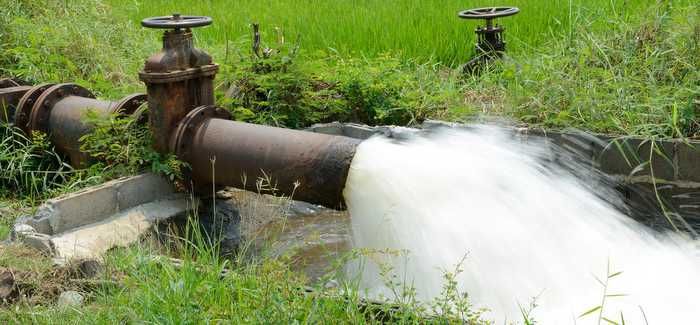Wastewater is only water source that increases as population grows: Regional IWMI Head

Wastewater presents a great potential for bridging the supply-demand gap as it is the only water source that increases as the population grows.
The remarks were made by Amgad Elmahdi, Head of International Water Management Institute (IWMI) office for the Middle East and North Africa (MENA) Office.
The IWMI – ReWater MENA project, in collaboration with the Arab Countries Water Utilities Association (ACWUA), concluded its eight-day workshop, on Sunday, which discussed the importance of wastewater in agricultural and industrial uses.
The workshop, held on 4-11 April, aimed to build and strengthen the capacities of different stakeholders and participants from Egypt in the field of safe use of wastewater, building on four training modules.
In a statement, the IWMI noted that the modules include stakeholders’ acceptance and gender integration in reuse interventions. It also assessed the Economic Feasibility for Integrated Wastewater Reuse (WWR) Projects: From Formulation to Reporting, Governance and Reuse Safety Plans, and Water Reuse Technologies. Different key stakeholders and governmental entities participated in the workshop.
Rifaat Abdel Wahaab, Head of Research and Development Sector at the Holding Company for Water and Wastewater (HCWW), said that the biggest challenge for indirect reuse in the Delta has been the mixed sources of waste streams.
These discharge untreated into agricultural drains. He also mentioned that the Egyptian Government’s plan is to treat and reuse drainage water on a large scale.
For his part, Elmahdi added that using treated wastewater in agriculture is considered one of the most sustainable alternatives to cope with water scarcity. This is particularly given that agriculture accounts for 80% of the region’s freshwater withdrawals.
He said that there are many challenges facing the use of treated wastewater in the Arab region, including social, institutional, economic, and cultural challenges.
He noted the need to deal with these challenges by developing plans and a road map for the three countries participating in ReWater MENA project, namely Egypt, Jordan and Lebanon.
Hussein El Atfy, Secretary-General of the Arab Water Council (AWC), said that wastewater is the only sustainable water resource. He said that it would be one of the main pillars in overcoming water scarcity challenges, as there is a major threat towards the water and food security in Egypt and the Arab region.
As a result, we need to move faster to adopt unconventional water resources including treated wastewater.
Nisreen Lahham, Regional Project Manager, said that ReWater MENA project aims to expand the safe use of the treated wastewater in the MENA region by addressing barriers to reuse and identifying validated reuse models through building the capacities of 400 trainees in the three countries, Jordan, Egypt and Lebanon.
She stated that the expansion of treated wastewater reuse would offer an alternative solution to meet agricultural water demand, saving freshwater for domestic uses and ultimately coping with water scarcity.
This article was originally published on https://dailynewsegypt.com
